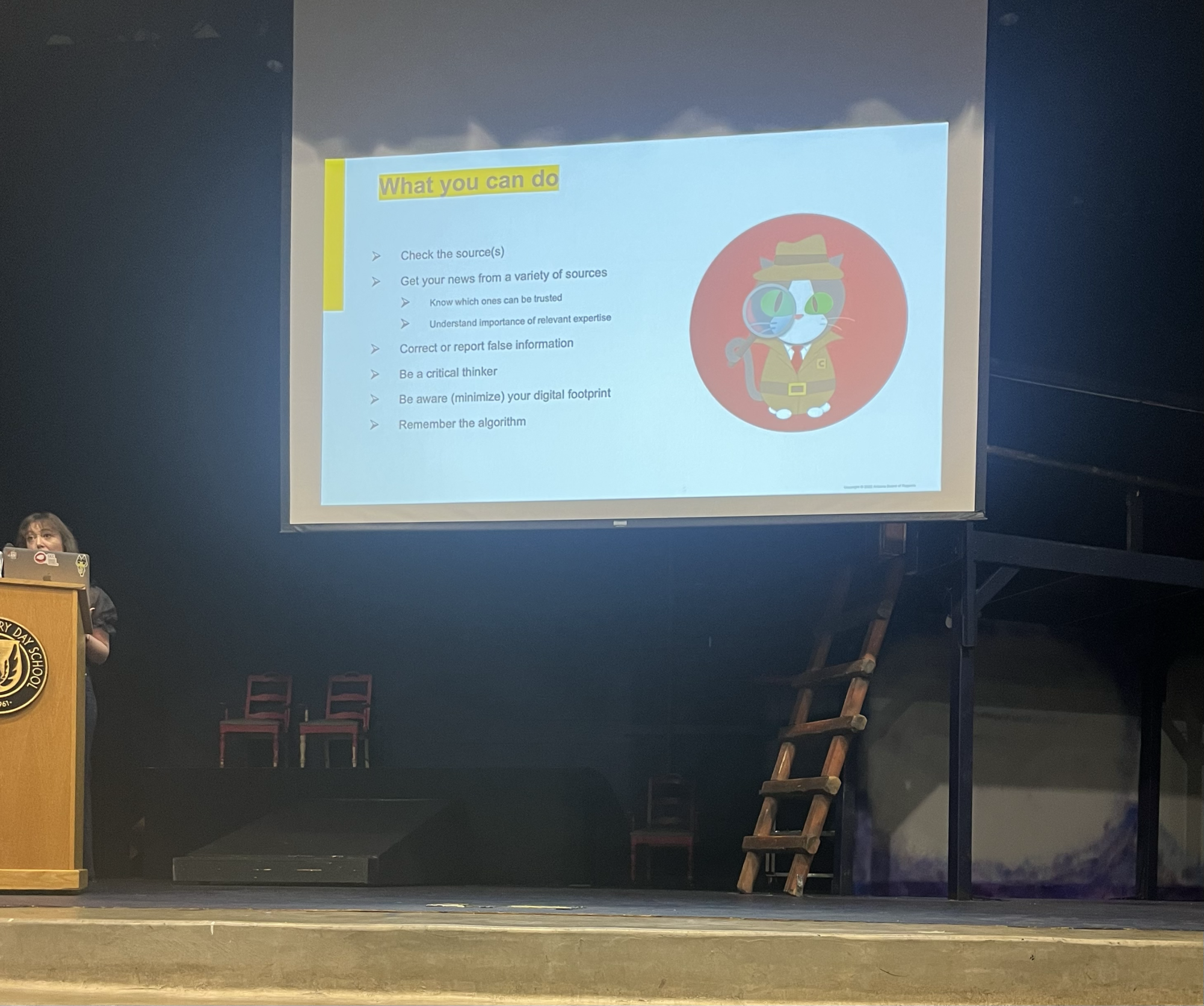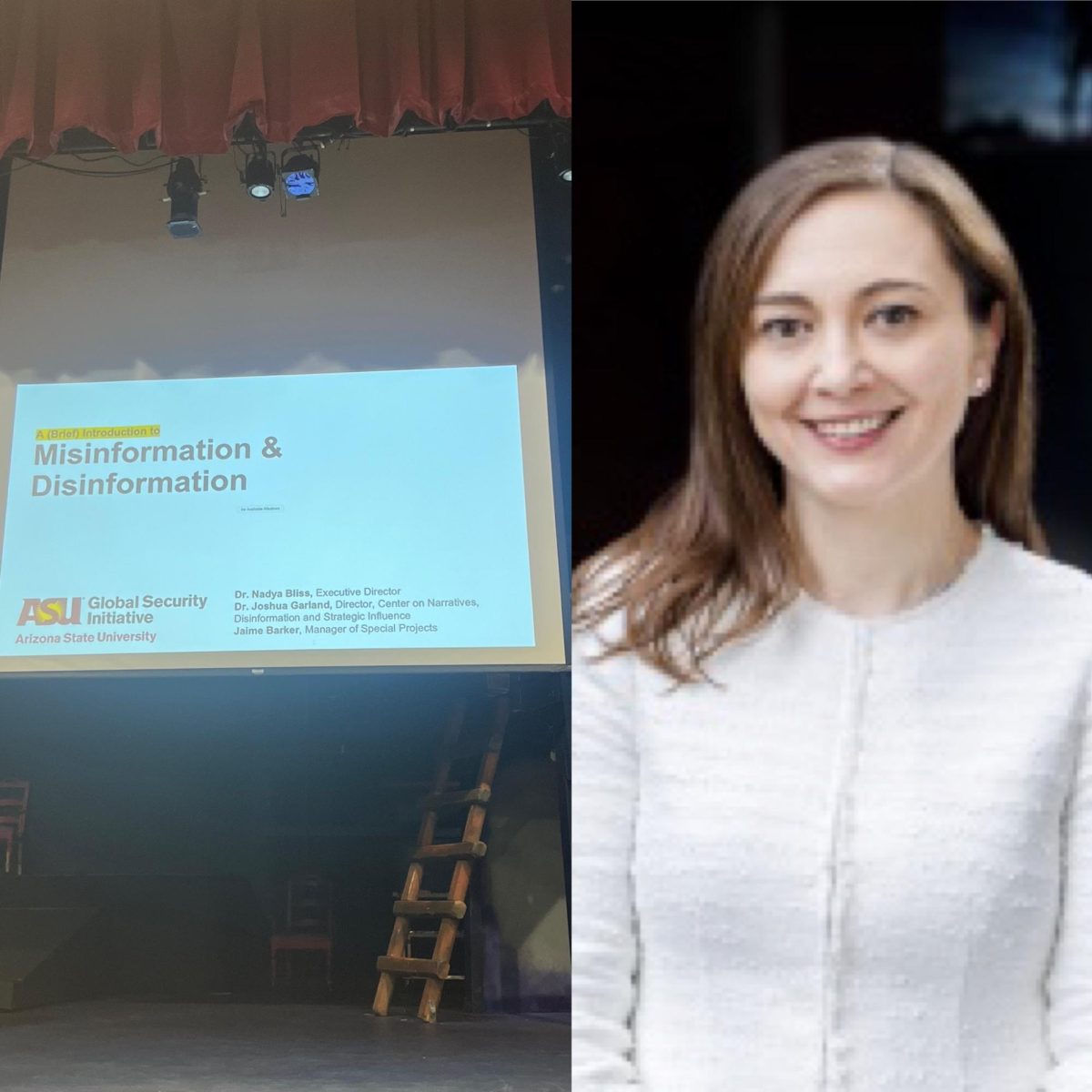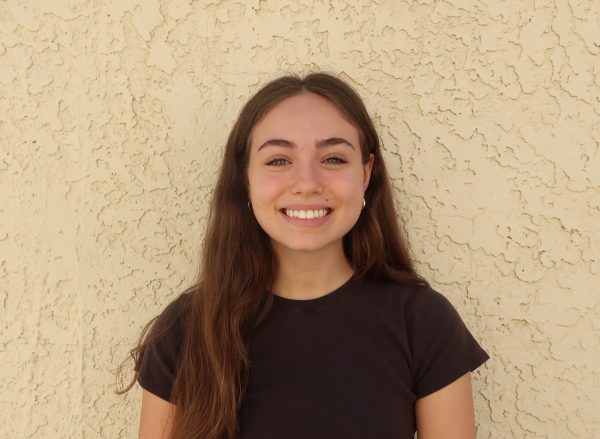The PCDS Upper School welcomed Dr. Nadya Bliss, the Executive Director of ASU’s Global Security Initiative, today during Community Time. Her talk covered disinformation and misinformation from an algorithmic perspective. This topic is connected to this year’s Humans of PCDS theme, “Misinformation and Algorithms,” and was a great introduction to how algorithms determine what we consume online.
With a brief show of hands at the beginning of her presentation, many PCDS students admitted to receiving news from social media, which is not very different from how many people get their news today. In a time of rising misinformation on these platforms, it feels impossible to tell what is real and what is fake.
Dr. Nadya Bliss has a PhD in computer science and is currently conducting research projects to address national security challenges. She believes in “practical solutions” for combating misinformation on social media. Removing oneself from platforms such as TikTok and Instagram to avoid misinformation is unattainable because, in today’s world, almost everyone is a social media user. “While I would love for [social media] to go away sometimes, that’s just completely impractical and quite frankly unnecessary,” Dr. Bliss said regarding the solution of stopping social media use to avoid incorrect news.
Instead, she suggests we, as social media consumers, should have an understanding of the algorithms that control these sites and recognize that what we are fed through the screen is catered to our specific interests and manipulated for engagement. Bliss points out that social media platforms are companies with a particular set of incentive structures to generate profit. With this information, you must view news on social media through the lens that it might not be accurate; they are just showing you things to get clicks/shares.
A major benefit of social media, according to Dr. Bliss, is the speed news and information are posted online. However, even in cases of breaking news, cross-referencing is still extremely important. The information we see immediately is not always accurate and we must be careful of that when perceiving it and sharing it.
“Information is sticky. It’s very easy to pick up a fact thats wrong and its hard to unlearn it,” said Dr. Bliss.

Her final advice to the student body was to check sources, get your news from a variety of sources, correct or report false information, be a critical thinker, minimize your digital footprint, and remember the algorithm. She recommended looking at news sites that are not for-profit models like NPR because they follow traditional journalistic practices and are dedicated to releasing news that is accurate.
This subject matter is very relevant to all students but particularly to those interested in understanding computer algorithms. Oliver Cartsonis ‘26 said, “I’ve worked with algorithms and AI before, and I also use social media a lot, so I’m always thinking about how to keep up with things while also staying accurate. It’s important to maintain a balance, like the speaker mentioned, but I feel like I need to be careful around outrageous misinformation.”
As algorithms get stronger and social media continues to be a news sources for many, it’s important to keep in mind the topics discussed by Dr. Nadya Bliss as we casually scroll. Keep watching your cat memes and Taylor Swift updates, but remember to be careful around the algorithm and do your own part in stopping the spread of misinformation.








